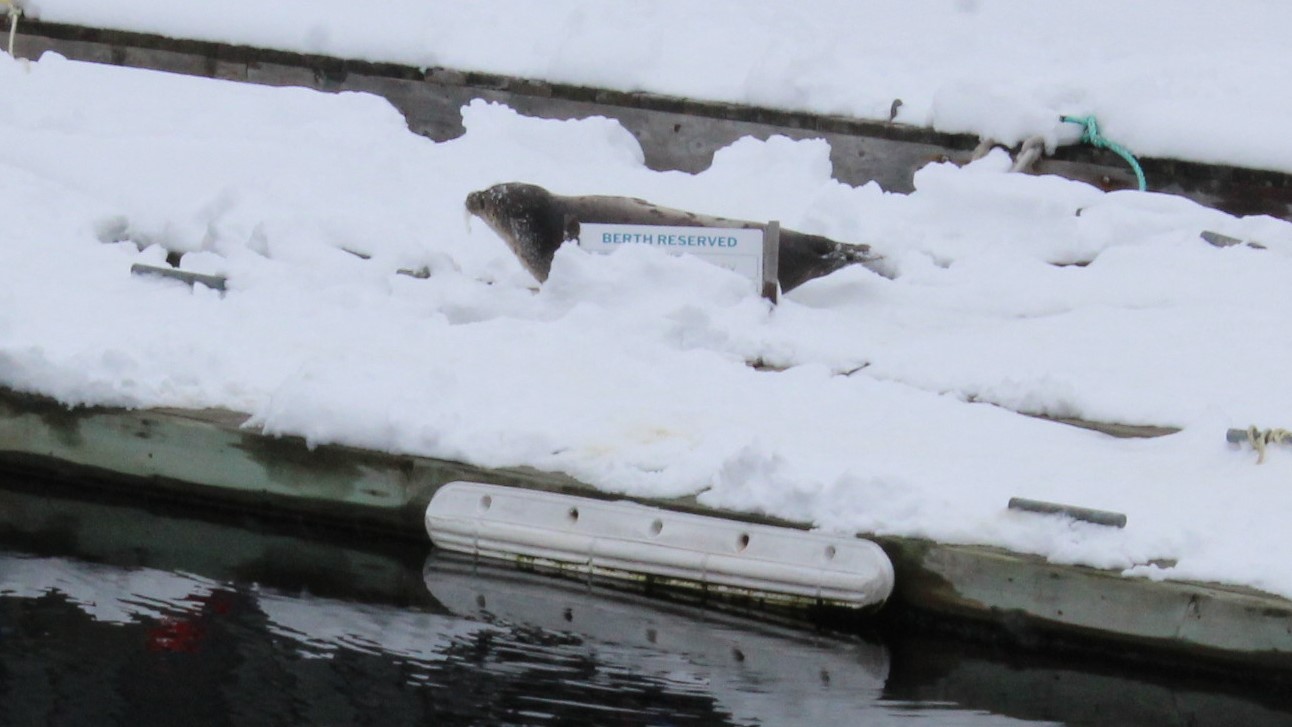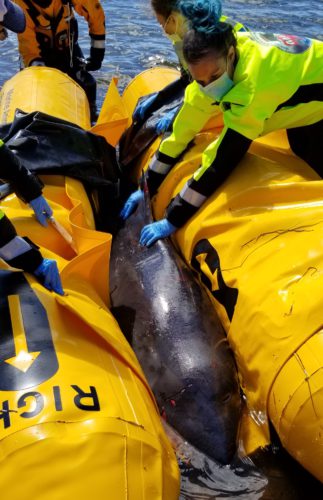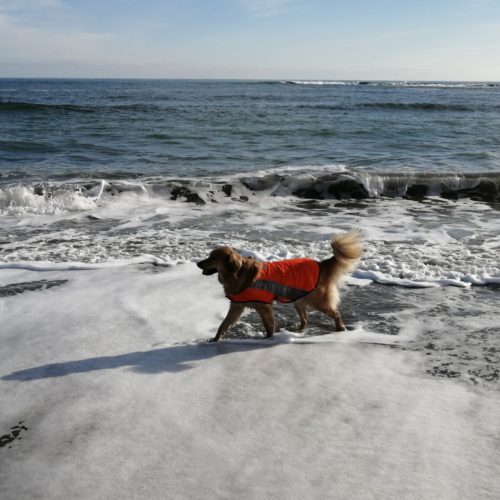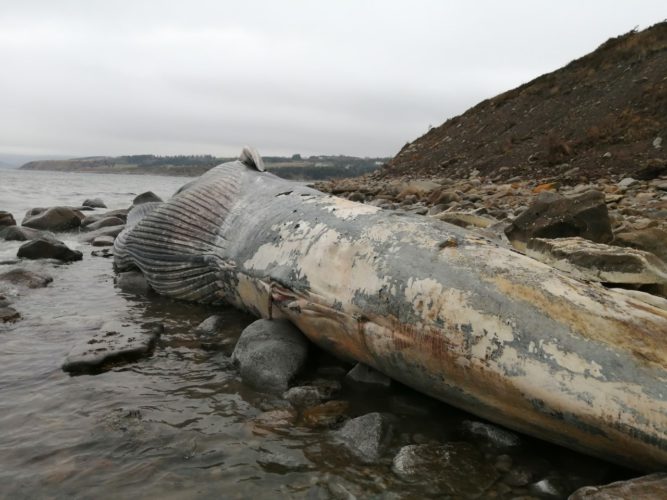Online animal medic training means marine mammals aren’t left behind during COVID-19
Marine Animal Response Society launches virtual training for volunteers

caption
A seal jumps onto a dock at the Halifax waterfront.The Marine Animal Response Society is seeing an increase in volunteers after launching its animal medic training program online in December.
Marine Animal Response Society (MARS) is a non-profit organization focused on marine animal conservation in Atlantic Canada. Danielle Pinder, the volunteer co-ordinator at MARS, developed the online version of the animal medic training program with colleague Jarret Corke, communications specialist at MARS.
“We even had this idea before COVID to make this program and the training more accessible,” Pinder said. “Since we’re based out of Halifax, it’s hard for us to go to New Brunswick and P.E.I. to train people all the time and we have a lot of volunteers in different areas.”
Before the training was online, Pinder said they had an estimated 150 to 270 active volunteers. Now, they have 358.
Volunteer work and training
Participants learn about marine species, conservation status, and safe methods to respond to dead and distressed animals.
“You don’t necessarily need to have a background in marine biology or have experience in this field, we really just need volunteers in as many areas as possible, because that means we can respond to more locations,” Pinder said.

caption
MARS teaches volunteers how to respond to marine animals stranded on land. MARS returns stranded marine animals to water using a flotation device.Volunteers help MARS respond to live or dead animals in the Maritimes by attending distress calls, photographing and identifying species, and working with MARS to decide the response. Volunteers may also be asked to monitor an animal to see if they are in distress.
Marine animals can strand on land for many different reasons, Pinder said, including being lost, sick, stuck in the tides, storms, plastic pollution, noise pollution, and entanglements.
Maria Lisa Polegatto, a paralegal in Sydney, N.S., started going for walks by the ocean with her dog Tilly, and started volunteering with MARS four years ago.
“It gets you more in touch with nature. It also encourages you to want to protect nature,” she said.

caption
Maria Lisa Polegatto takes her dog Tilly with her on walks.As a volunteer, Polegatto goes to Gabarus and Belfry beach, and reports on any animals in distress. She carries two bags to pick up trash on the beach when she’s out.
“We don’t always encounter wildlife while we’re out, but we always clean up anything that’s there,” Polegatto said.
Online marine animal medic course
Julia Naugler, a Dalhousie University graduate in Halifax, signed up for the course in December.
“I just really wanted the opportunity to dedicate some of my time to helping a cause that I care about, and marine animals are really close to my heart,” Naugler said.
She found the hardest part of the course was remembering the names of all of the species. She doesn’t prefer online courses, but found this one engaging.
MARS rotates volunteers to contact when they need someone to respond to an area, Naugler said, so everyone has a chance to get out even if they are new.
“I definitely feel included with them,” she said.

caption
Volunteers often encounter live and dead stranded marine animals, and report them to MARS for a course of action.Pinder said more course modules will be released, including some focused on live and dead animal response that will still require a hands-on component.
“At least for now, especially with COVID, volunteers can get the very basics online from this program and kind of figure out how to work with us there, which has been very helpful,” Pinder said.
Marine animal conservation during a pandemic
MARS has been able to continue its work during the pandemic, Pinder said.
Some of the challenges from COVID-19 have included border closures, as MARS responds to marine animals in distress in all Atlantic provinces. Size gathering restrictions have also been a challenge, Pinder said, because responding to stranded dead animals requires many people, machinery, and equipment.
She said they had to prepare contingency plans for responding to these incidents while maintaining safety protocols, but they often use a lot of protective equipment for these events in their normal operations.
“It’s an ever-evolving protocol that we’ve created. We have a document that we’ve created for our volunteers that we update and just give them information on how to respond safely during COVID,” Pinder said.
About the author
Chelsy Mahar
A journalism student at the University of King's College and an aspiring poet.

M
Maria Lisa POLEGATTO